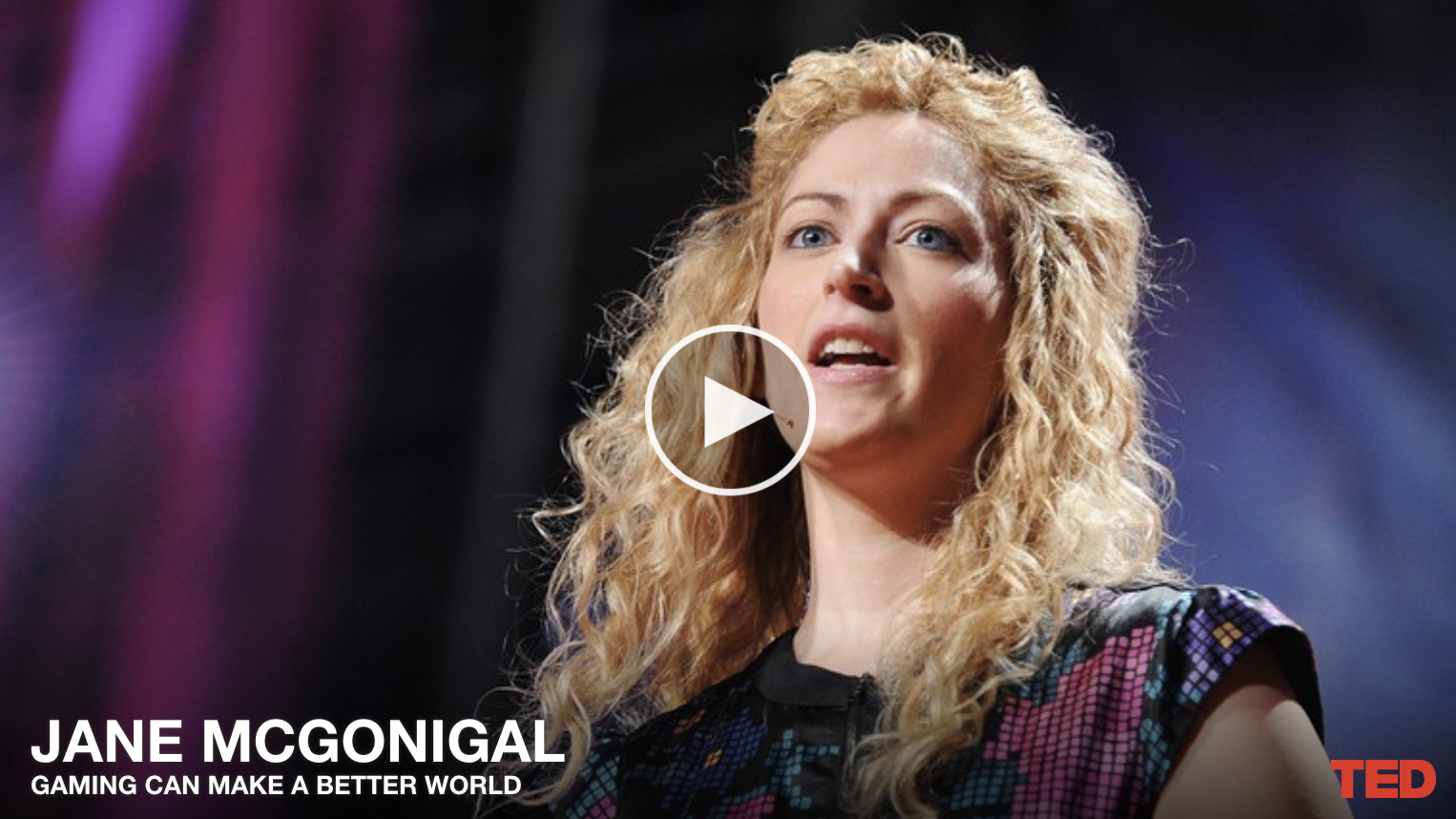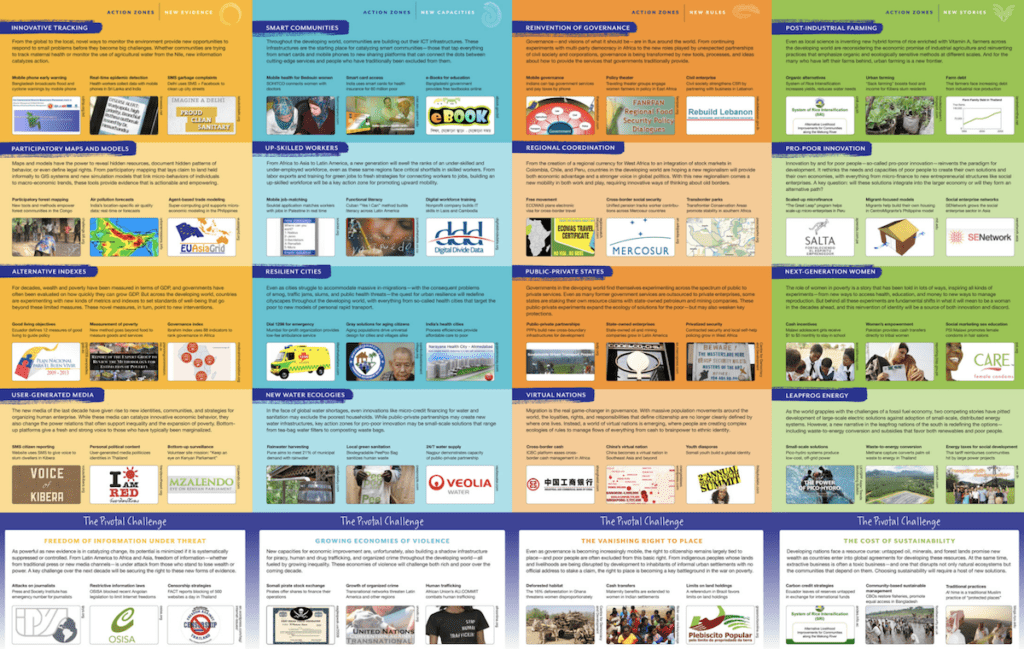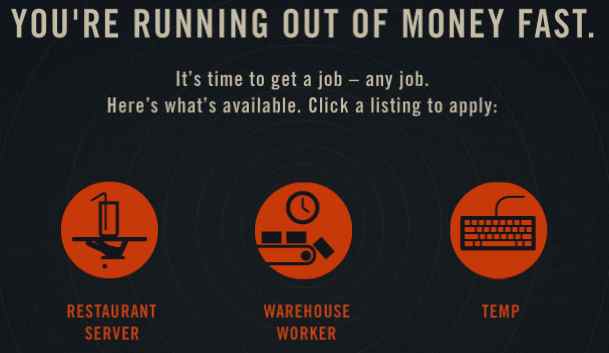Somewhere along the way I began to write less about games here on Mission to Learn, but my interest in them as an approach to learning has never faded, and after seeing the Jane McGonigal video below it has multiplied many times over.
McGonigal begins with the startling – and no doubt disturbing to some – news that we now spend around 3 billion hours weekly playing games. Where she takes that statistic, however, is what is most fascinating about this video. From McGonigal’s point of view, we need to multiply the number of hours we spend gaming by 7 (yes, that means 21 billion hours weekly), if we want to solve big problems like hunger, poverty, climate change, global conflict, and obesity.
Why all this game play?
Because it is practice. It is learning in a virtual world the types of skills and behaviors we need to solve the seemingly intractable problems of the real world. For example, collectively all of the players of the highly popular World of Warcraft multi-player online game have spent 5.93 million years solving the problems of that world. In perhaps the most provocative turn of her talk, McGonigal frames this amount of time in evolutionary terms – human beings “stood up” approximately 5.93 million years ago, and everything else has happened since.
I’ll stop there, because I think you really need to see the entire video to appreciate McGonigal’s thinking fully. The video runs about 20 minutes, and I guarantee you that if you are the least interested in how we learn and change on a large scale, it will be worth your time.
I’m eager to hear your thoughts once you have watched it. Do you buy the evolutionary analogy and the potential for transferring the benefits of gaming into the real world? Please comment and share your views.
Jeff
P.S. – If you like this post, you may also be interested in an article I did a while back for WE magazine called Playing for Change.





im a fellow world of warcraft player,im 15 and i live in australia, i am a gamer that will play games when ever i have free time, i of many people can see how gaming can help us from poverty and hunger because i know that if im playing worldofwarcraft i cant be stuffed getting food, unless i get realy hungry!, now saying that it could fix the prices of food going up as well becaause if people eat less we dont get as fat, we buy less food preventing povery, and also we bring our markests prices down by buying less food which means less of us would be hungry and be able to buy food if u cant allready afford it
Outstanding TED talk! Yes, I “buy it.”
I see how my 7 y.o. immerses himself into games, explores, discovers and solves… And I see how much he is able to retain and apply when he’s so deeply immersed. Then I compare that to the school learning experience and see a huge disconnect! So, yes, the question is how do we use the gaming for learning and change?
Fantastic article. Have you heard about the real-life World Resources Simulation Center in San Diego?
Imagine playing with the best real life people solving the problems of Energy and Water Sustainability in San Diego, for an entire month!
Visit https://www.wrsc.org and check out the “Sept Event”
Fascinating TED talk. It reminded me of a little piece I heard on NPR recently about how Madden NFL was teaching real football players how to play the game better, both because of the extra playing hours it provides (which gets to the practice hours that Malcolm Gladwell and Jane McGonigal cite) and because of the scenarios–a specific example was of a player going in a touchdown who paused and ran around near the end zone for a few seconds before crossing over to drain time off the clock. The NPR piece asserted that kind of strategy was straight from Madden NFL play.